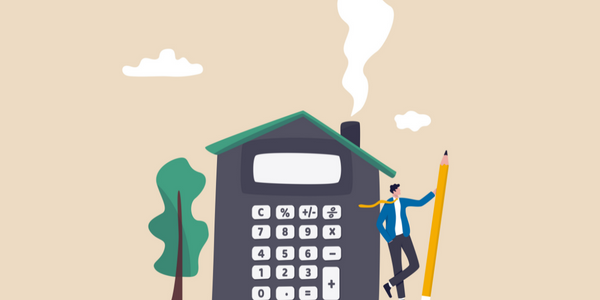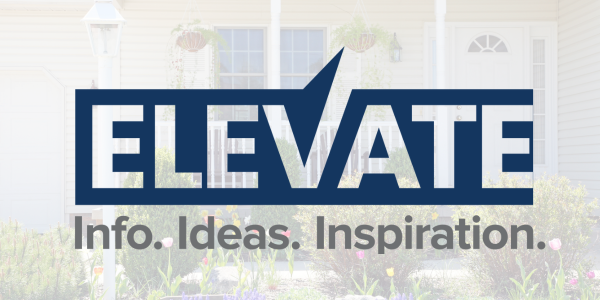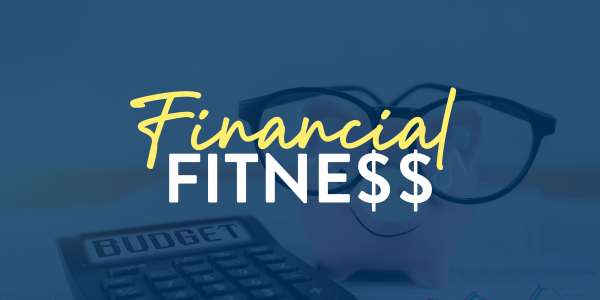
You’ve just bought a home. Congrats! Now, you may wake up every morning feeling exactly as you did when you were renting. After all, aside from a new home and possibly a new neighborhood, not much has changed in your day-to-day life.
While this may be true of your daily routine, your first year as a homeowner comes with some subtle differences compared to renting. For one, you’ve locked in your housing costs—and your residence—for as long as you want. There is also the peace of mind that comes with knowing that this property is yours.

Of course, there’s the added bonus that you may be able to watch your investment appreciate over time. This not only provides a financial nest egg for your future, but also perhaps a safety net. Homeownership is widely considered the #1 way to build wealth for most Americans, so having a long-term investment can help boost your financial health in many ways.
Your first year as a homeowner also brings some responsibilities you didn’t have as a renter. The good news is every decision regarding this property is now up to you. The bad news is every decision regarding this property is now up to . . . you.
These decisions can feel empowering or terrifying. The way you view them generally comes down to how prepared you are. So get in the zone and start thinking about your first year as a homeowner before you even begin the homebuying process. That way, you’ll be all set when the time comes and the keys are handed over to you—responsibilities and all!
Emergency Fund
Things happen. Some are predictable (say, a water shortage affecting your lawn in California), while others not so much (a flash flood that roared through your first level in Idaho). Homeowners insurance will cover certain costs, including damage to your dwelling and personal property in many instances, but it typically won’t cover everything that could go wrong in your home, including some natural disasters.
That’s where an emergency fund comes in. It’s always good to have at least six months’ worth of living expenses saved up for an emergency in case your financial situation changes. This includes home repairs. Even if you can’t hit this number, it’s good to save whatever you can.
Start socking away any extra cash into a fund earmarked for home repairs and emergencies NOW, before the emergencies happen. Some banks will let you do this automatically through an automatic transfer that takes a designated amount of money from your checking account and places it into another (let’s name this your emergency fund) on a regular basis. We recommend a flat amount per paycheck, whether that’s monthly, bi-weekly, or weekly. This way it’s out of sight and out of mind . . . until you need it.
Neighborhood Contacts
You’ll want to make friends—of course—but you’ll also want to develop a village of service professionals you can call during your first year as a homeowner. Ask the previous homeowner for any warranty information on existing appliances within the home before the sale closes. Make sure you investigate these policies yourself, and know exactly whom to call and what information is required should you find yourself in need of a repair or replacement.
On top of that, it’s always good to comb Yelp and take recommendations from trusted neighbors on repair people. If you are a member of Nextdoor, you can access a list of recommended businesses in your area—or you can ask your neighbors on this closed social media platform. This includes individuals/companies that can service appliances, in addition to flooring, HVAC (heating, ventilation, air conditioning), roofs, landscaping, pools, plumbers, electricians, and more.
You don’t want to wait until an emergency arises to then begin the process of trying to locate a reputable source. You can even do your due diligence ahead of time by asking about rates and typical timelines, though keep in mind these may change during an emergency repair, which is why it’s always good to ask about those costs as well. Be sure to check if they have an after-hours number, too, as these emergencies don’t always happen during business hours!
DIY Home Maintenance
You definitely want to leave the big and/or complicated jobs to a licensed professional, so take a pass on any do-it-yourself lessons that involve dangerous tasks like electrical rewiring. Smaller items, however, like fixing a leaky pipe, patching a drywall hole, unclogging a sink, and cleaning gutters can result in big cash savings if you can do them yourself.
There are a million websites, books, and YouTube tutorials that tackle each of these subjects. Always assess your physical capabilities first before determining if this task is for you, but if so, have at it! You’ll not only save some money but will also learn a new skill during your first year as a homeowner!
This is also where those personal neighborhood contacts can come in handy. Particularly “neighborly” neighbors may be willing to show you how to perform these tasks yourself, or they may take care of it for you. The nice part about learning a new home maintenance skill is that you can trade tasks over time. Your neighbor might be able to help winterize your pipes—or show you how to—while you can clear out his gutters or teach him how to do his own pool maintenance.
Your first year as a homeowner may feel like it takes a village to keep a home running, and your neighbors may agree! So work together whenever possible to get the job(s) done.
Tools for the Task
Proactivity is always the best strategy, which is why it’s good to think ahead and investigate which home repairs you think you can tackle on your own. That’s because many involve certain materials or tools that may not be at your disposal when the repair arises. This is half the reason why homeowners end up breaking down and calling for backup. Once something goes awry, they simply don’t have the time, money, or energy to seek out the items needed to do the job themselves.
So make YouTube and chill a priority for a few nights a week. Research common household repairs, pick the ones you think you can tackle, then sit back with a pen and paper (or notepad app) and write down what you’ll need to get this job done, along with any pertinent info on carrying out the repair.
Next, it’s off to the store! Being that this is your first year as a homeowner, you’ll want to buy a useful toolkit if you don’t have one already. You should also consider purchasing any tools or materials that you might be able to use for multiple jobs, including a level, cordless drill, staple gun, tape measure, putty knife, and various sets of wrenches, screwdrivers, and pliers. If you have a local neighborhood hardware store, they typically have salespeople at the ready to help, unlike many big box stores. Leverage that help in building your basic toolbox—they know the types of things people need and which might be right for you.
For more specialized items, ask around! You might have a neighbor that has a miter saw in their garage to lend to you. If not, consider renting bigger ticket items from your local equipment rental business. Often the cost to rent an item for a few hours is worth it if you don’t have to store or maintain that item afterward!
Being a homeowner is so rewarding, but, like everything else, it often takes some hard work to reach that reward. Thankfully, a little proactivity, due diligence, and ingenuity can go a long way toward ensuring the longevity of your investment.
Ready to start your first year as a homeowner? Give APM a call to get the process rolling.








